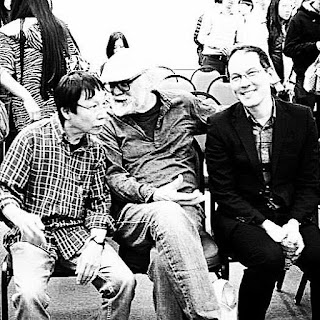Me and my Monkey: my story behind Monkey Business: New Writing from Japan

via GLLI Editor’s note: Forget the old saw that English language readers won’t read literature in translation. For the last seven years, Monkey Business: New Writing from Japan has been publishing an annual journal of what it calls “the best of contemporary Japanese literature” in English. The paperback editions of the first three issues were completely sold out. This year, though, for reasons the editors call “both professional and personal,” it will not be releasing a new edition. Monkey Business will return with issue no. 8 in 2019 but the digital and most paperback editions of issues 1-7 are available for purchase at its online store . I asked Roland Kelts, who has been involved with the journal since its founding, to tell us about Monkey Business and his connection to Japanese literature in translation. Eight years ago I had the good fortune of being asked to do a favor. Professors Motoyuki Shibata and Ted Goossen, esteemed literary translators, invited me to di...





